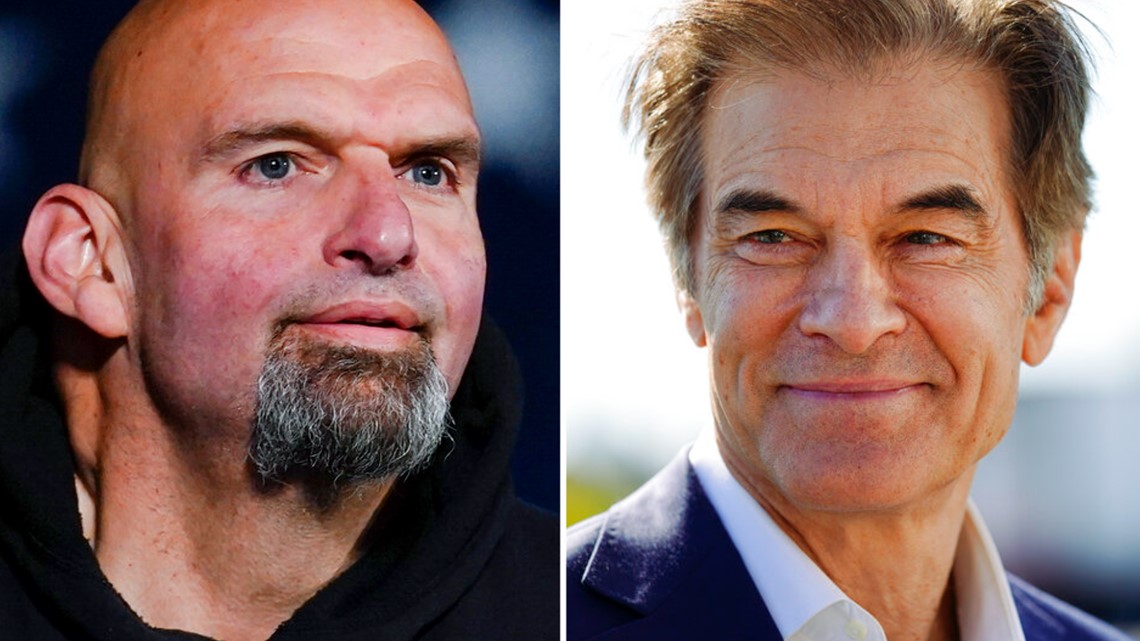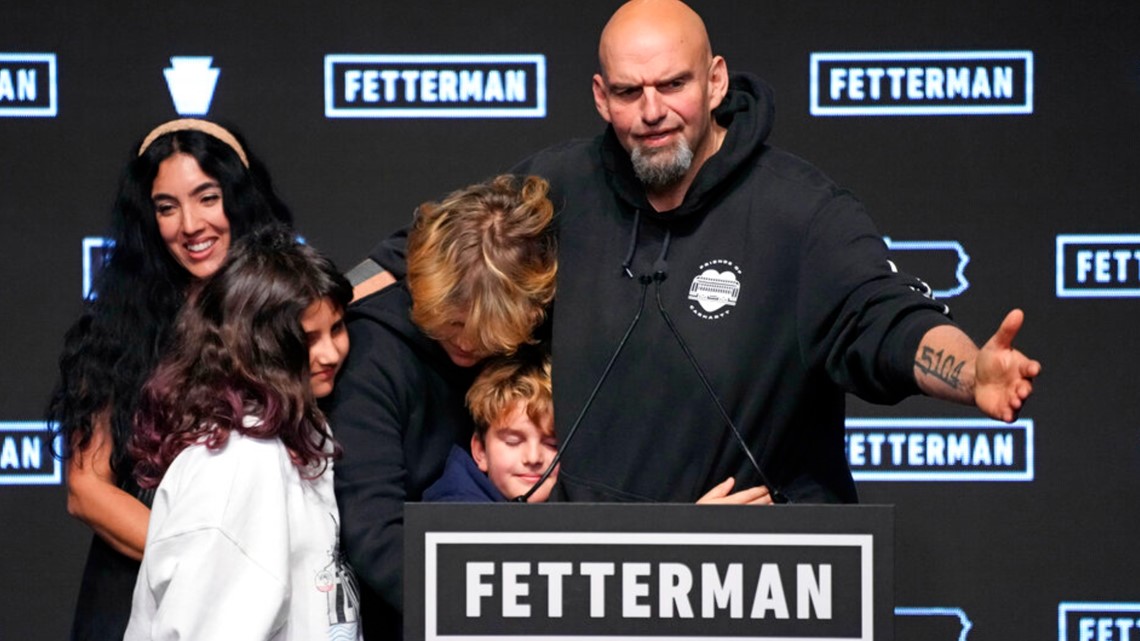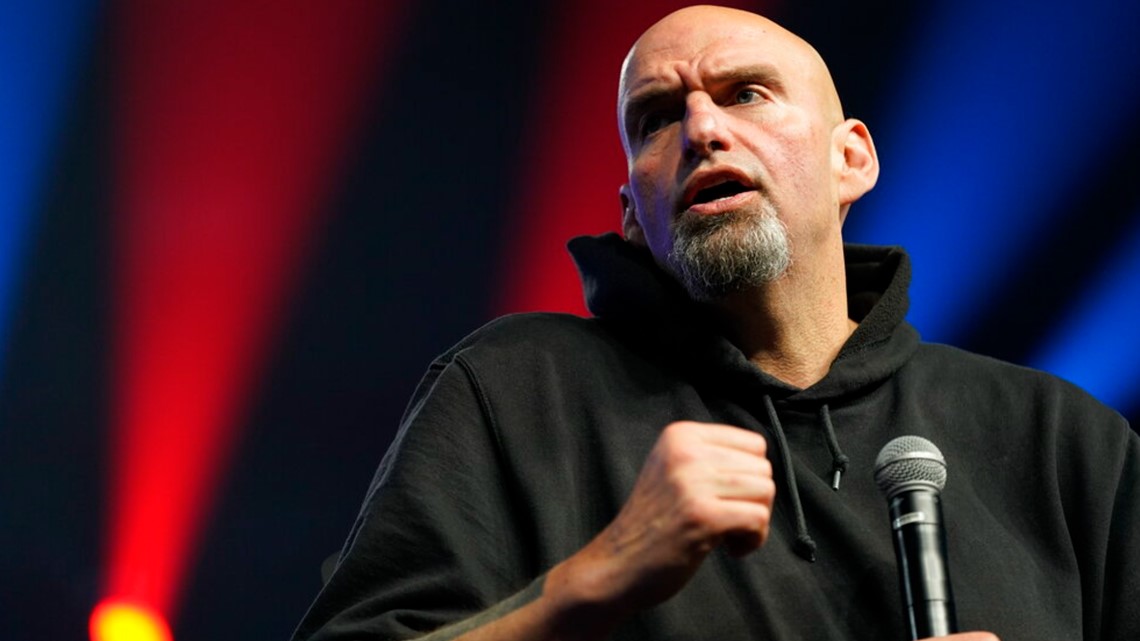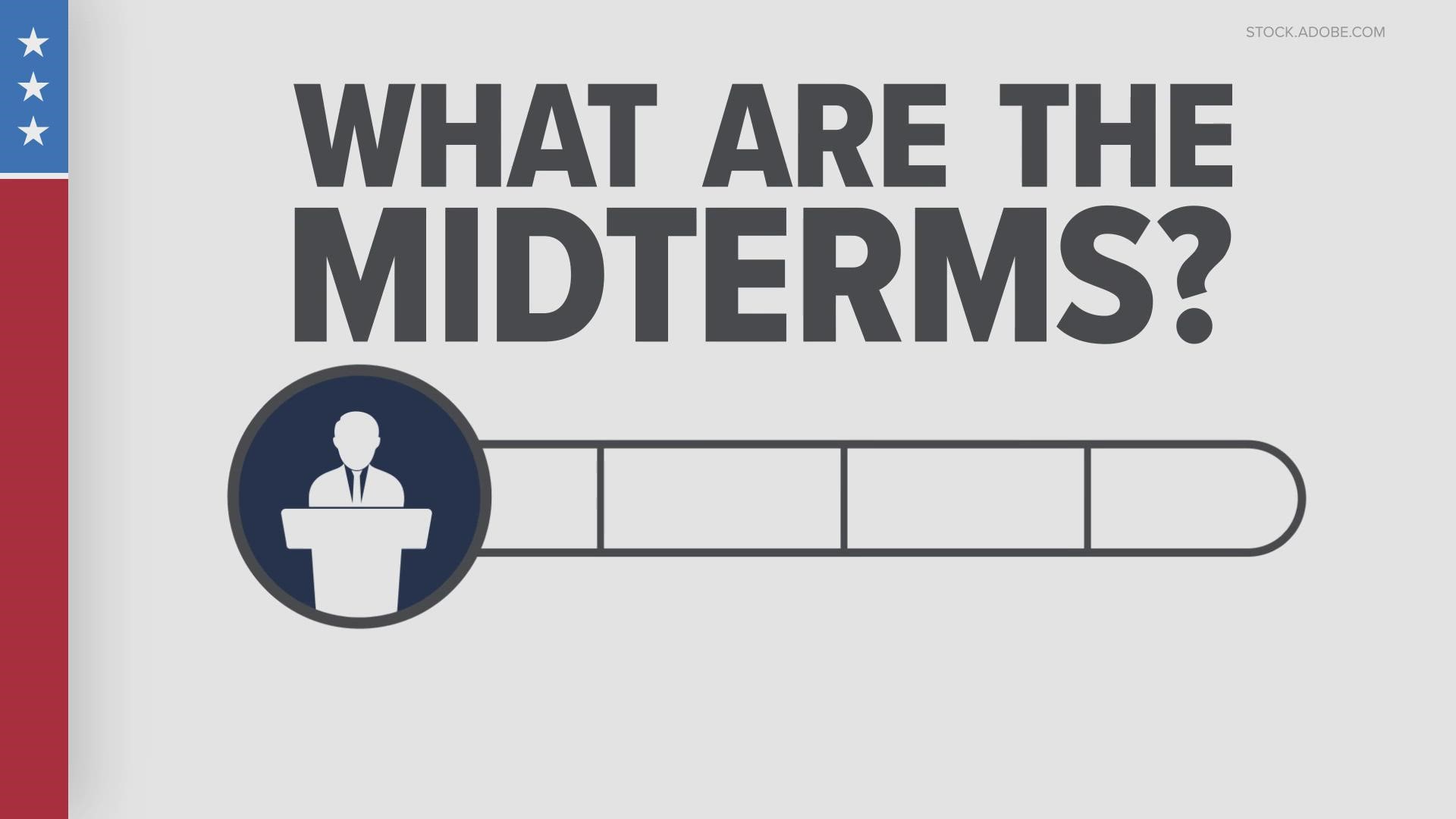PHILADELPHIA — Democrat John Fetterman won Pennsylvania’s pivotal race for U.S. Senate, flipping a Republican-held seat as he recovers from a stroke during the bare-knuckled campaign and giving Democrats hope they can retain control of the closely divided chamber.
Fetterman, Pennsylvania’s lieutenant governor, defeated Dr. Mehmet Oz, the smooth-talking and wealthy heart surgeon-turned-TV celebrity in the presidential battleground state.
Fetterman credited his “every county, every vote” campaign strategy in which the tattooed and hoodie-wearing candidate sought to bring the Democratic Party back to predominantly white working-class areas that have increasingly rejected the party.


“And that’s exactly what happened,” Fetterman, 53, told a cheering crowd early Wednesday at a concert venue in Pittsburgh. “We jammed them up. We held the line. I never expected that we would turn these red counties blue, but we did what we needed to do and we had that conversation across every one of those counties.”
Along the way, he had vowed to be the Democrats’ “51st vote” to pass foundational legislation to protect rights to abortion, health care, same-sex marriage, unions and voting, as well as to raise the minimum wage.
He has likened his stroke, which he had in May, to getting knocked down and adopted that as a campaign mission.
He ran for “anyone that ever got knocked down that got back up,” he told the crowd. “This race is for the future of every community across Pennsylvania, for every small town or person that felt left behind, for every job that has been lost, for every factory that was ever closed and for every person that worked hard but never gets ahead.”
Fetterman spoke smoothly early Wednesday but required closed captioning during media interviews and, two weeks ago, during the lone debate between the men. He turned in a rocky performance in which he struggled to complete sentences, jumbled words and fueled concern inside his party that it had doomed the race.
To underscore the importance of the race, President Joe Biden campaigned in Pennsylvania for Fetterman three times in the final three weeks, while former President Donald Trump came in, as well, to hold a rally for Oz, his endorsed candidate.
Oz also carried heavy baggage into the election. That included having just moved from his longtime home in neighboring New Jersey — a mansion overlooking the Hudson River just across from Manhattan — and barely winning a bruising primary in which opponents cast him as an out-of-touch Hollywood liberal.
Fetterman won despite national political headwinds for Democrats, such as rising inflation. He will succeed retiring second-term Republican Sen. Pat Toomey.


Fetterman sought to harness outrage over the Supreme Court’s abortion decision and promised to vote to abolish the filibuster, the Senate rule that often requires a supermajority of 60 votes to advance legislation.
Fetterman characterized a vote for Oz as a vote to outlaw abortion — ridiculing Oz’s comment during the debate that he wants “women, doctors, local political leaders” to decide the fate of abortion — and painted Oz as a soulless TV salesman who hawked useless health supplements for money and will say or do anything to get elected.
For much of the race, Fetterman was forced to explain away progressive stances to a swing-state electorate, including a flip-flop on natural gas drilling and pardons for state inmates convicted of murder.
A stroke on May 13 left him unable to speak fluidly and quickly process spoken conversation into meaning, a common effect called auditory processing disorder.
Oz relentlessly challenged Fetterman over whether he had been honest about the effects of the stroke and pressed Fetterman to release his medical records. Fetterman refused, and also refused to let his doctors answer questions from reporters.


Fetterman had insisted he would recover fully. He tried to turn his recovery into a strength, accusing Oz of trying to capitalize on his disability and saying it had made him more empathetic toward the millions who suffer medical problems.
Ultimately, Fetterman’s everyman appeal won out over Oz’s celebrity as the host daytime TV’s “The Dr. Oz Show.”
Fetterman is irreverent, plainspoken and looks more like an aging professional wrestler. At 6 feet 8, he is tattooed, goateed and glowering, with a clean-shaven head and casual dress that often involves shorts — even in winter — and hoodies.
Along the way, he revolutionized the use of social media in campaigns, bringing in a torrent of small-dollar donations and relentlessly trolling Oz’s gaffes, wealth and status as a recent transplant to Pennsylvania.
And he tried to recapture Democratic losses among blue-collar white voters and playing up his efforts to campaign in farther-flung counties where Republican margins have grown quickly in recent years. Democrats came to see him as someone who might normalize the party with disillusioned voters in the age of Trump.
Oz was whipsawed between a primary in which he tried to fend off attacks that he was secretly liberal and a general election contest against Fetterman in which he had tried to appeal to moderates and Black voters.
Even with Trump’s endorsement, he won the primary by barely 900 votes in a contest that went to a statewide recount. Trump was a longtime friend and fellow entertainer whom Oz had come to know through New York City’s social and charity fundraising circles.
Still, Trump’s most hard-line voters didn’t quickly warm to Oz, and many in the state’s party establishment had lined up with a primary rival.
The election was the most expensive for a U.S. Senate seat in Pennsylvania, surpassing $300 million. Money from national groups poured in, and Oz spent more than $25 million of his own fortune on the race.
Much of the Republican money for TV ads dwelled on crime, suggesting that Democrats have failed to protect people from violence and drugs and aiming to undercut one of Fetterman’s avenues of appeal to Black voters: his efforts as lieutenant governor to free the over-incarcerated, rehabilitated or innocent.
Oz and Republicans cast it as freeing dangerous criminals to roam the streets, often distorting Fetterman’s positions.
Fetterman, the former mayor for 13 years of tiny, impoverished Braddock, near Pittsburgh, used his time there to establish credentials with the Black community in the majority Black town, in fighting gun violence and to keep a hospital in the crime-wracked community.
He is tattooed with Braddock’s ZIP code — 15104 — on one forearm and, while he was mayor, the date of every slaying in the town as he worked to prevent crime.
The Harvard University-educated Fetterman became a progressive hero in the Pittsburgh area, advocating for legalizing marijuana and same-sex marriage, and a media darling, garnering profiles in national publications and appearing on some of TV’s most-watched nightly talk shows for his unconventional efforts to draw investment — including a gritty Levi’s TV ad — to Braddock.
For months around the 2020 election, he was a regular face for Democrats on cable news shows and the campaign trail, carrying a shield for Biden and accusing Trump-supporting Republicans of “simping” for Trump’s approval and lying about the validity of Pennsylvania’s presidential election.
His wife — Gisele Barreto Fetterman, a Brazilian immigrant — contributed to Spanish-language voter outreach.

